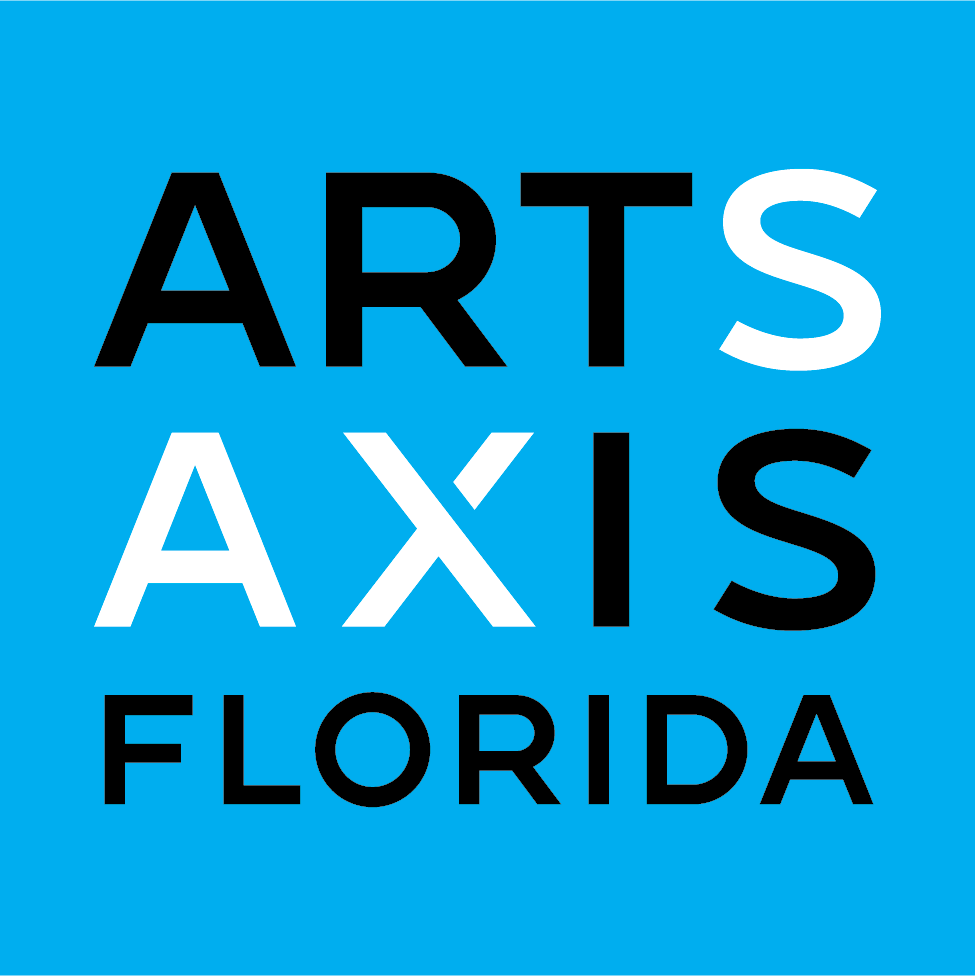00;00;00;18 - 00;00;27;27
Malaika Hollist
Welcome to the Arts Axis Florida Podcast series When Freedom Rings. In this six part series we speak with our black and brown community on what has transpired in the art world since the Emancipation of Slavery since June 19th, 1865. We have open conversations on their experiences as people of color and their contributions to art, community and education. The series highlights their continued efforts to move the needle forward.
00;00;28;13 - 00;00;29;25
Malaika Hollist
This is When Freedom Rings.
00;00;30;15 - 00;00;49;00
Adrianna Rodriguez
Hello and welcome to another episode of When Freedom Rings. My name is Adrianna Rodriguez, and today I have the honor of interviewing Dr. Arthur Hollist. Dr. Hollist is an English professor at the University of Tampa, where you can find him teaching a variety of courses such as composition, world literature and African literature, which happens to be today's topic.
00;00;49;11 - 00;01;09;05
Adrianna Rodriguez
Dr. Hollist received a bachelor's degree from the University of Sierra Leone. Then he went on to Canada to receive his master's in Dalhousie. Dalhousie. Dalhousie University. And finally, he received his Ph.D. from none other than right here at the University of South Florida, which just so happens to be where the WCF Public Media Studios is located. Hey, Dr. Hollist.
00;01;09;05 - 00;01;09;20
Adrianna Rodriguez
How you doing today?
00;01;09;22 - 00;01;11;03
Dr. Arthur Hollist
Fine, thank you. How about you?
00;01;11;04 - 00;01;13;15
Adrianna Rodriguez
I'm doing well. Thank you for coming on and being our guest.
00;01;13;16 - 00;01;14;04
Dr. Arthur Hollist
You're welcome.
00;01;14;05 - 00;01;17;15
Adrianna Rodriguez
So let's go ahead and give the audience a little background of yourself other than what I just said.
00;01;18;09 - 00;01;44;22
Dr. Arthur Hollist
Okay. I was born in Sierra Leone, West Africa, in the city of Freetown many, many years ago. And I went to my elementary and primary school in Sierra Leone. And then for about five years, my family traveled to the United Kingdom and I was schooled there right up to perhaps like junior year of high school in the States.
00;01;45;08 - 00;02;01;09
Dr. Arthur Hollist
And then I returned to Freetown and attended the University of Sierra Leone and graduated there before, as you already know. Let the audience know. I attended Dalhousie and USF.
00;02;01;26 - 00;02;08;09
Adrianna Rodriguez
Awesome. So what was your upbringing like? Was it the reason why you're so into Africa literature?
00;02;08;27 - 00;02;40;00
Dr. Arthur Hollist
Well, not necessarily African literature, but literature, period. I grew up in a household that didn't have television, and so we lost ourselves. And we by we, I mean my myself and my siblings. We lost ourselves in books. We read books. And I think by the time I was nine, certainly before we traveled to the United Kingdom, I'd probably read all of the children's classics.
00;02;40;14 - 00;02;50;18
Dr. Arthur Hollist
You know, that was what we did and we listened to the radio. So it was a world in which information was coming in from the outside into our heads. Yeah.
00;02;50;29 - 00;02;54;20
Adrianna Rodriguez
It's like another way to explore the world without having to, like, leave your house.
00;02;54;20 - 00;03;00;29
Dr. Arthur Hollist
And write the equivalent today. I guess, would be to take a virtual tour. That's what we were doing without video.
00;03;01;09 - 00;03;16;26
Adrianna Rodriguez
With your mind. That's awesome. I know my mother, for instance, she came to the states. She was seven, so she learned English reading the Dr. Seuss books. So I know, like literature is a very for her, it was a very important thing to like, read and know what you're reading and understand what you're doing. Because when you have that in you, nobody can take that from you.
00;03;16;26 - 00;03;26;04
Adrianna Rodriguez
Nobody can take any of that from you. With that, how is your traditions and your culture shaped the way that you live and how you teach?
00;03;26;29 - 00;04;00;26
Dr. Arthur Hollist
Well, I think the way I would answer that question is to just simply identify three things. My culture is a culture of sharing, a culture of caring and a culture of fostering. And I think the best way to also illustrate that is to just talk about the way in which we care for the the seniors in our societies, because there are virtually no assisted living facilities, no old people's homes, that kind of thing.
00;04;00;26 - 00;04;26;12
Dr. Arthur Hollist
So when somebody gets to the age of 75 and above, they generally tend to live with their families. So you grow up as a child knowing that grandma and grandpa and sometimes other relatives, senior relatives are living at home. So that caring is just part of what you do. And I think almost by osmosis I extend that to my students in the in the classroom.
00;04;26;18 - 00;05;00;26
Dr. Arthur Hollist
And the same applies to fosterage. It's not just the nuclear family. You, your brother and sisters. It's also the less fortunate relatives who may come from the rural areas and need education in the city schools. And so, therefore, you grew up with surrounded by other people who you call siblings, but they're not blood siblings. And I think that what that has done for me, as far as teaching is concerned, is to make it expansive.
00;05;01;04 - 00;05;20;29
Dr. Arthur Hollist
And so when I when I encounter and engage my students, it's almost as if I'm seeing them as family, certainly in the in the classroom. And I think this is consistent with the way in which pedagogy is is explained in the States. What you want to do in your class is to build a community of learners.
00;05;21;05 - 00;05;37;08
Adrianna Rodriguez
Mm hmm. You kind of touched on this a little bit, but I'm going to head and ask, what is something that isn't often shared or said about the traditions in your culture? You didn't mention, you know, big family tradition like everybody is in the house, everybody takes care of each other, not just the nuclear family, but everybody outside of that as well.
00;05;37;17 - 00;05;47;07
Adrianna Rodriguez
But aside from that, what are some traditions or just something about your culture that you feel like isn't shared or isn't seen as well in media or in or anything that's recorded?
00;05;47;20 - 00;06;04;07
Dr. Arthur Hollist
I think traditions, by definition, are sort of fossilized rituals. You know, we develop traditions because we want to solve problems. And once we've solved that problem, we keep repeating the practice.
00;06;04;08 - 00;06;04;16
Adrianna Rodriguez
Mm hmm.
00;06;04;27 - 00;06;37;20
Dr. Arthur Hollist
And I think if there's something that perhaps ought to be said about tradition, it's that it can sometimes lead to resistance to change. So to go back to the foster age or even my classroom, if I adopted, is that in mode of teaching? It's really difficult sometimes to embrace new technologies. And, you know, have to be pushed by the students, maybe even my own kids attitudes in order to learn new technologies.
00;06;37;20 - 00;06;59;15
Dr. Arthur Hollist
So tradition is good because it allows it provides stability. It provides continuity. But the world is changing around traditions. And so for practitioners of certain traditions, they have to open up their minds to change and new possibilities. So that's something that I think is not often spoken out loud.
00;06;59;17 - 00;07;22;28
Adrianna Rodriguez
Hmm. I like that. It's a it's a reassuring way of hearing that, like, older generations are able to open up and change as new ways of thinking, new ways of learning and living coming through. And I think it does create like a really cool blend of traditions or of newer ideas for like fostering like togetherness and oneness and things of that nature.
00;07;23;01 - 00;07;39;14
Adrianna Rodriguez
Yeah. So let's go ahead and dove into this topic that we are here for today. So you brought up something really good when I was doing research on you and on this topic in general. And you you said that we should change the term from just African culture or the country of Africa to the African diaspora. What does that mean?
00;07;39;28 - 00;08;17;00
Dr. Arthur Hollist
The term itself diaspora refers to the scattering or dispersal of people. So you probably probably have heard of the Jewish diaspora and and the African diaspora just simply provides a label for you to identify the people who are scattered. The scattering resulted from the trans-Atlantic and the trans Saharan slave trades. So Africans were able to were dispersed to other parts of the world because of those to these routes or trades.
00;08;17;11 - 00;08;48;00
Dr. Arthur Hollist
This is not to say that there weren't African explorers, but we don't hear about those kinds of people often enough. Mm hmm. More recently, Africans have voluntarily left the continent for economic reasons. They want a better life in another place. Sometimes it's because of political persecution or, you know, they have difficulties adjusting to the traditions that we talked about a moment ago.
00;08;48;10 - 00;09;23;21
Dr. Arthur Hollist
So there are a variety of reasons why they are dispersed across the world. They travel to Canada, to the United States, to various parts of Eastern and Western Europe and South America. Now, when I say that, I think most people think that, you know, it's a safe flight to buy a plane. You enter through a recognized port. But we all know that there are migrants who flee on foot, who try to cross from North Africa into Europe across the Mediterranean Sea.
00;09;24;00 - 00;10;04;04
Dr. Arthur Hollist
But these are all the constituents who disperse around the world and then form small, sometimes small, sometimes large conglomerates or communities of black people who, because of their shared common point of origin, tend to have similar cultural characteristics and features. And it's that whole sort of collection of people and practices that we call the African diaspora. But it shifts.
00;10;04;04 - 00;10;13;25
Dr. Arthur Hollist
It's kind of like. Like an amoeba. Mm hmm. You know, it changes according to time and the composition of people who do most of the traveling.
00;10;14;24 - 00;10;21;08
Adrianna Rodriguez
What do you feel or why do you think it's important for us to recognize and understand this term, especially in today's world and what's going on?
00;10;21;19 - 00;10;56;12
Dr. Arthur Hollist
I think the best way of illustrating that is perhaps to mention that last week, I think it was last week, the new British prime minister appointed a British citizen. So he was born in the U.K., who is now the chancellor of the exchequer. The chancellor of the Exchequer is the equivalent of the US Treasury Secretary. But and his name is Kwasi Kwarteng.
00;10;57;22 - 00;11;58;13
Dr. Arthur Hollist
His parents, both his parents were from Ghana. If you think of General Colin Powell, he died recently, maybe two or three months ago. His parents, he rose to become the secretary of state of the United States. And I think at one point he was the chairman of the Joint Chiefs of Staff and his parents were from Jamaica. So what we are seeing increasingly across the globe is that Africans, the citizens of other countries who have relatives and ancestors or heritages in Africa, are occupying senior level positions in various government bodies national, state, local.
00;11;59;03 - 00;12;34;24
Dr. Arthur Hollist
And I think the importance of that is that these voices that may have been marginalized are given an opportunity to be heard as policy is being formulated at the national level so that it's not just confined to a particular population to, let's say, white males, for instance, or any of the majority population. You know, the minority populations have been included in the way in which policies formulate.
00;12;35;27 - 00;12;49;15
Adrianna Rodriguez
And with that, what do you think? The African diaspora has the effect on literature and culture and anything creative, anything with the arts, anything with life. What do you think? What effect do you think that has or how do you think that that has affected it?
00;12;49;16 - 00;13;21;26
Dr. Arthur Hollist
It's hard to measure the effect, but it's certainly there. And I think the best illustration of that is she mentioned Adichie. I don't know if you've heard of her, but she's from Nigeria and is arguably the most well-known fiction writer. Okay, African fiction writer in the world. And arguably, I see. She's written five books. They've been translated, I'm pretty certain, into the major languages of the world.
00;13;22;06 - 00;14;03;27
Dr. Arthur Hollist
And so her works have circulated way beyond Nigeria to all parts of the globe. Her one of her books, We Must All Be Feminists is was so popular, at least so important in the eyes of the Swedish government that they gave the book to every 16 year old in the country. Wow. Okay. So that gives you a sense of, you know, the reach of these individuals who belong to this African diaspora.
00;14;04;07 - 00;14;32;13
Dr. Arthur Hollist
Again, I can't tell you with any degree of certainty what the effect is. In other words, I can't measure it for you, but it's these individuals and personalities, the movie stars, sports stars, they're out there. They're being recognized as black or mixed race. And that I should point out that they are white Africans as well.
00;14;32;15 - 00;14;32;25
Adrianna Rodriguez
Mm hmm.
00;14;34;10 - 00;15;09;04
Dr. Arthur Hollist
And and I think what they're doing is sort of gradually elevating the profile of black people right across the globe. Among the 25 most popular TEDTalks is Chimamanda Adichie's. The danger of a single story and words from her speech, We should all be feminist. Feminist was part of Beyonce's flawless album.
00;15;09;13 - 00;15;10;19
Adrianna Rodriguez
Okay. Okay, okay.
00;15;11;04 - 00;15;11;27
Dr. Arthur Hollist
Yeah, that's.
00;15;11;27 - 00;15;12;22
Adrianna Rodriguez
Right. Okay.
00;15;12;22 - 00;15;38;05
Dr. Arthur Hollist
So they're not necessarily political figures. They're not necessarily people who are going to change the world. But if young girls and young boys are familiar with these people and familiar with where they come from, you can see how that would at least change the mindset of the younger generation and anybody who's exposed to the material.
00;15;38;08 - 00;15;46;29
Adrianna Rodriguez
Shakespeare in in British English writers and how they ship history in our classrooms. Specially here in America. Mm hmm. In a Dr. Hollis world, how would this translate with African literature?
00;15;48;02 - 00;16;24;29
Dr. Arthur Hollist
Typically, I teach introductory courses to African literature, and. And I typically start in by telling students that modern African literature, as we understand it, today, started around the 1950s, okay. With Chinua Achebe. And things fall apart. You've probably heard of Things Fall Apart. So in my sort of perfect world, that's where I would start and then teach the established writers like Achebe.
00;16;25;25 - 00;16;30;26
Dr. Arthur Hollist
But African literature is dynamic and it's evolving.
00;16;30;29 - 00;16;31;07
Adrianna Rodriguez
Mm hmm.
00;16;31;21 - 00;16;54;05
Dr. Arthur Hollist
And we talked about after the African diaspora. There are lots of Africans who were born in the continent, kind of like me, who now naturalized citizens of either the US or some European countries or Canada and Australia who are creative writers.
00;16;54;08 - 00;16;54;17
Adrianna Rodriguez
Mm hmm.
00;16;55;11 - 00;17;26;03
Dr. Arthur Hollist
And they are generating pieces of literature, fiction, poetry, nonfiction that are not Afro Africa centered. The reality is, my experience is a lot more sort of mixed, more hybrid. I've spent more of my life in the United States than I've actually spent in Africa. So when I write, I write and most writers do this, they write from their own experiences.
00;17;27;04 - 00;17;59;25
Dr. Arthur Hollist
And consequently, when you talk about African literature, I am often wondering whether I whether to include black despite this, that diasporic writers or just confine African literature to that produced by Africans in the continent. This point. It would be sort of the individual choice of the professor. Mm hmm. But. But that's the sweep that I would take if I wanted to introduce African literature.
00;17;59;25 - 00;18;11;24
Dr. Arthur Hollist
Now, hey, there's graduate work and doctoral work that that could lead somebody to to zero in on a particular concentration or a particular field.
00;18;11;29 - 00;18;31;16
Adrianna Rodriguez
So in your opinion, where what is the state of African literature? Because you did it, you just explain how it's just a mixture of people's experiences being born in Africa and living elsewhere or they're in Africa and they're actually writing these stories and everything of that nature and being that actual, like you said, the historical findings of Britain, actual books, maybe 1950.
00;18;31;16 - 00;18;34;16
Adrianna Rodriguez
So today, what would be the the state of African literature?
00;18;34;17 - 00;18;36;25
Dr. Arthur Hollist
I would say it's dynamic.
00;18;36;26 - 00;18;37;06
Adrianna Rodriguez
Okay.
00;18;37;23 - 00;18;59;06
Dr. Arthur Hollist
It's growing. Mm hmm. And it has evolved. See, people like me who teach in universities tend to be narrowly focused on books that are published. And publishing is a expensive.
00;18;59;09 - 00;18;59;21
Adrianna Rodriguez
Yes.
00;19;00;06 - 00;19;21;01
Dr. Arthur Hollist
You need an infrastructure in in order to to to publish a book, meaning you have to have a press. Mm hmm. You have to have editors, agents. All of these people will have input in the production of a book because the infrastructure that I've just described is not present.
00;19;21;02 - 00;19;21;08
Adrianna Rodriguez
Mm hmm.
00;19;22;21 - 00;19;32;14
Dr. Arthur Hollist
The Internet has now become the vehicle through which Africans publish, quote, unquote, their material.
00;19;33;00 - 00;19;37;14
Adrianna Rodriguez
Is that why you have I know that you have websites because that way you share other works of literature on your website.
00;19;37;15 - 00;19;58;00
Dr. Arthur Hollist
That's that's partly it. But that there is a whole array of literary material that's been published that people like me who teach in the universities might consider sort of second rate. Mm hmm. But that's a very popular.
00;19;58;05 - 00;19;59;12
Adrianna Rodriguez
Mm hmm. Um.
00;20;00;04 - 00;20;51;06
Dr. Arthur Hollist
Shorter stories. Shorter stories written in indigenous languages. Giving advice. Very didactic. They teach you things. There are pamphlets that are radio shows. Even think of stand up comedians. Um, people who want to tell their stories. Are using these various media to tell their stories. So people are interested in stories. They're just delivering those stories in different forms. And I think it's universities and professors who have to catch up to the direction in which the literature is going.
00;20;51;12 - 00;21;13;13
Adrianna Rodriguez
Mm hmm. Right. So, speaking of teaching and attending universities, you attended three different universities in three countries on two different continents. Is there a difference between the way education is taught and received in those environments that you are in? So being in those different, like I said, different countries and environments like Sierra Leone to Canada and and down here to Tampa and then taking all that.
00;21;13;22 - 00;21;22;09
Adrianna Rodriguez
How does that how does that affect what you're trying to teach? How you teach? Does any of that have any of those experience have anything on the professor you are today?
00;21;22;24 - 00;22;09;04
Dr. Arthur Hollist
Oh, absolutely. The Sierra or the Sierra Leone educational system is based on the British infusion system. And what I recall of both is it involves a lot of sort of memorizing rote work, a formal kind of education, which is sort of diametrically opposed to the way education takes place in the United States. Now, I think that's largely because in the U.S. and in Canada, there's been a great deal more study in how to teach.
00;22;09;08 - 00;23;00;06
Dr. Arthur Hollist
And, you know, there's an abundance of resources to make teaching in different ways possible with the emphasis these days being on student centered learning, learning by doing service, learning, those kinds of things. And I think that provokes and stimulates maybe a better word, more independent, creative kind of learning and what I've done, I think I don't know how successful, but but I've made the effort to create a more laissez faire classroom and give students assignments which encourage them to be inventive and not just simply to be to reproduce, you know?
00;23;00;12 - 00;23;21;07
Dr. Arthur Hollist
So. So, yes, there are differences. I've tried to embrace the differences, but, you know, like some old habits tend to die hard. So there are some things I still do that, you know, I still think that students should read. For instance, there's no substitute for for reading because without reading the material, you can't discuss it.
00;23;21;09 - 00;23;35;21
Adrianna Rodriguez
Right. Absolutely right. Mm hmm. So it's like something you hope that, you know, they take with them that stays with them for life or like maybe some advice you give them or how they work or how they research it. What is something that you want your students to take from you?
00;23;36;09 - 00;24;00;07
Dr. Arthur Hollist
Story, particularly literature, provide windows into the world. So the more stories you read, the more you're likely. We talked about doing virtual tours earlier. The more stories you read, the more likely you have. You are to have a broad view of the world and of people.
00;24;00;09 - 00;24;00;17
Adrianna Rodriguez
Mm hmm.
00;24;01;06 - 00;24;26;17
Dr. Arthur Hollist
But I think I also emphasize to them that stories that help us think when you and I read a story, you know, a month later, we don't really remember the particular details of the story, who did what, but we remember the point of the story. So if you take, for instance, Cinderella Oak, you can forget a lot of the details.
00;24;26;17 - 00;25;04;21
Dr. Arthur Hollist
But you know that Cinderella was this girl who was ill treated by her sisters and her aunt and but because she was patient, she was really eventually rewarded with the prince. Mm hmm. Right. So the point of that story is that patience leads to good rewards. And what happens with our brains is that we store that point and the many other points which we grab from the stories we read.
00;25;05;08 - 00;25;41;02
Dr. Arthur Hollist
Right. And we use that when we come across new situations. So if you find yourself now living with some an aunt and had daughters and they're treating you, you use the Cinderella story to teach yourself to be patient. And and so stories help us think so. I always tell my students, read and get the point of the story, but even more importantly, learn to tell stories so that you can shape how other people see the world.
00;25;41;03 - 00;25;43;08
Dr. Arthur Hollist
Mm hmm. And it's a very powerful tool.
00;25;43;21 - 00;26;07;19
Adrianna Rodriguez
Everybody's experience is one thing. So when they read the story, they're like, personal experiences, like, come into that some way, shape or form. And then when you share that reading experience with other people, you kind of see how their perspective of how they saw the story. But at the end, at the end, when everybody comes to the same conclusion, it's kind of like like to me, it's kind of a beautiful thing because it's like so many different minds, so many different ideas, so many different ways to process information and what's in front of you.
00;26;07;25 - 00;26;26;25
Adrianna Rodriguez
And it's to come to the same conclusion and to teach that to other people. I like that idea. I've also found that your writing that you're working on writing a novel between relationships of Africans, African-Americans and Caribbeans. Caribbeans. Why is this important and how is this journey affected your writing?
00;26;27;13 - 00;27;08;29
Dr. Arthur Hollist
Oh, it's important simply because that's the orbit in which I live. You attend functions you inevitably are going to run into people from the Caribbeans and African-Americans. And inasmuch as we are all black, we all don't share the same views and and cultures and even when we are from where some of us are from the same continent, you know, people from eastern and southern Africa are different from people from West Africa.
00;27;08;29 - 00;27;41;14
Dr. Arthur Hollist
And. And those two groups are different from people from East Africa. So it's the dynamic know the oftentimes there's an expectation that we are homogeneous and we're not. And trying to understand that relationship and how it plays out in various areas of life. And so that is my preoccupation in terms of my creative writing and and there's just tons of stuff to write about.
00;27;41;14 - 00;28;15;29
Dr. Arthur Hollist
I wish I had enough time to, to explore that in the various ways. I think one of my most recent stories deals with it in terms of LGBTQ issues in which an an African young man born in Sierra Leone spends most of his life in the US and then decides to return home and sort of come out to not only his family, but to his rural community.
00;28;16;08 - 00;28;39;22
Dr. Arthur Hollist
And it throws that community into disarray. Mm hmm. Well, it's it's those kinds of issues. How the they they connect with where we come from, where we are now, and the different value systems. It's that nexus of issues that I'm interested in exploring that.
00;28;40;02 - 00;29;04;12
Adrianna Rodriguez
That sounds like a very like a very interesting story or topic to even like read or, you know, just, just knowing people's cultures and how they grew up in families and then being a part of the LGBT community and coming out or trying to play that safe space between, okay, I want to be myself, but I also want my love and my family and everybody to still be there.
00;29;04;21 - 00;29;21;05
Adrianna Rodriguez
So I think that, that, that I want to read that story. That sounds like a really, really interesting story. So speaking of writing, in 2013, you were one of the top five finalists for the 2013 Caine Prize for African Writing. 96 entries from 16 African countries. What was that experience like?
00;29;21;13 - 00;29;58;24
Dr. Arthur Hollist
Oh, that was a wonderful experience, except the fact that I didn't win. That was the bad part of it. You know, I wrote and turned this story in and and I'd forgotten. So the day I got the email notifying me that I was shortlisted, I initially didn't even remember which story I sent. But basically what they do is they pay for you and the other short listers to go to London and and they wined and dined you for about a week.
00;29;58;25 - 00;29;59;05
Adrianna Rodriguez
Mm hmm.
00;29;59;22 - 00;30;32;26
Dr. Arthur Hollist
You get to go to the Houses of Parliament, and I forget the name of the lady. The Duchess, Duchess of some important places. She took us around. We went to parliament. We had lunch and. And we toured the building. In between all of these activities, we did readings. And then the night before the yeah, then we were driven to Oxford University, you know, about Oxford, the Bodleian Library.
00;30;33;20 - 00;30;37;16
Adrianna Rodriguez
And it must have been a world like, Oh, there's been heaven for that one.
00;30;37;22 - 00;31;05;16
Dr. Arthur Hollist
Oh, yeah. I mean, it was really a great experience, but that's where the nervousness screws it because they put five people together for an entire week. You're literally doing everything together. So it's kind of like being on an what's the program called, Big Brother Light Operation. Yeah, it's only one week long. So you, you get to know these people, you get to even like them.
00;31;05;27 - 00;31;33;15
Dr. Arthur Hollist
But underneath all that sort of is the game. Yes, yes. I want to win. I don't care. Then sort of half we have through the dinner, they announce the winner. And when you're not the winner, you're. You're sort of like in a daze. But the exposure, the fact that you're shortlisted in my case has been very helpful to my career.
00;31;33;15 - 00;31;36;13
Dr. Arthur Hollist
I've had an opportunity to go to Kenya to.
00;31;36;13 - 00;31;38;05
Adrianna Rodriguez
Redo and.
00;31;38;12 - 00;31;47;06
Dr. Arthur Hollist
Go to Germany to read. So you may not win, but there are benefits that accrue from being shortlisted.
00;31;47;27 - 00;31;50;25
Adrianna Rodriguez
So how has this motivated you? Oh.
00;31;52;09 - 00;31;54;17
Dr. Arthur Hollist
You know, I. It's made me want to write more.
00;31;54;19 - 00;31;54;28
Adrianna Rodriguez
Mm hmm.
00;31;55;18 - 00;31;57;27
Dr. Arthur Hollist
And I'm continuing to do so.
00;31;58;10 - 00;32;03;03
Adrianna Rodriguez
So you're continuing writing. Do you continue to submit to various arts and literature organizations as well?
00;32;03;15 - 00;32;26;17
Dr. Arthur Hollist
Um, yes. You know, that's what we do as professors, you know, but. But, yeah, absolutely. Any time I have an opportunity, I submit to a competition or a journal, a magazine, and that's what I do on a continuing basis.
00;32;27;09 - 00;32;33;25
Adrianna Rodriguez
Speaking of those, what are some publications or online assets that you feel do a great job at highlighting African arts and culture?
00;32;35;10 - 00;32;47;16
Dr. Arthur Hollist
Well, I am wedded to two days when the belcher's website and I think it's Wendy Belcher dot com.
00;32;47;19 - 00;32;47;27
Adrianna Rodriguez
Okay.
00;32;48;20 - 00;33;02;14
Dr. Arthur Hollist
And it provides some of the most sort of well-researched information on African pre-colonial African writing.
00;33;02;15 - 00;33;02;24
Adrianna Rodriguez
Okay.
00;33;03;28 - 00;33;45;04
Dr. Arthur Hollist
Identifying the writers, the scripts, the languages. So for me, I found this very exciting because honestly, I did not start studying African literature until I came to the United States. Okay. Until I was about to write my dissertation right here at USF. That was when I studied focusing in. So that website, if you're interested, is sort of where you want to start so that you have the background as far as African precolonial African writing is concerned.
00;33;45;24 - 00;33;55;05
Dr. Arthur Hollist
And then I hope I don't butcher her name, but her name is Dr.. She's a Professor Cora at Gucci.
00;33;55;10 - 00;33;55;20
Adrianna Rodriguez
Okay.
00;33;56;06 - 00;34;41;25
Dr. Arthur Hollist
And she has easily the most complete, pensive website on and timeline on African history and culture. Literally, anything that you want to know. It's pages and pages of dates, names, even ins, individuals. You know, structured in an easy to access format with links built in so that you can watch videos. And typically, I just tell my students, okay, for background information.
00;34;41;25 - 00;34;50;14
Dr. Arthur Hollist
This is the sites that you need to go. But, you know, hey, girl, YouTube is if you Google anything, you find that very true.
00;34;51;00 - 00;35;00;24
Adrianna Rodriguez
Very true to what do you feel in your opinion, in your experience, your research is the biggest misconception about views on Africa?
00;35;02;16 - 00;35;05;19
Dr. Arthur Hollist
Well, that it's one that's it's a country.
00;35;06;03 - 00;35;06;15
Adrianna Rodriguez
Yes.
00;35;07;18 - 00;35;18;05
Dr. Arthur Hollist
You know that it's it's a country in which is a country replete with problems.
00;35;18;07 - 00;35;18;14
Adrianna Rodriguez
Mm hmm.
00;35;20;03 - 00;35;29;13
Dr. Arthur Hollist
Wars, farming, dilapidated infrastructure. Corruption.
00;35;29;16 - 00;35;29;25
Adrianna Rodriguez
Mm hmm.
00;35;30;20 - 00;35;43;25
Dr. Arthur Hollist
Those are the images that we see on television all the time. And I. And when I list them off like this, I'm not suggesting by any means that these are untrue.
00;35;43;28 - 00;35;44;08
Adrianna Rodriguez
Mm hmm.
00;35;45;07 - 00;35;59;22
Dr. Arthur Hollist
But they they do not capture what I would describe as the thousand little progresses that are happening throughout the continent.
00;35;59;23 - 00;36;00;04
Adrianna Rodriguez
Mm hmm.
00;36;01;28 - 00;36;50;14
Dr. Arthur Hollist
People making cars, other people using tires to construct playgrounds for. For kids. Business is organizing seminars and workshops so that young people can come and share their ideas that those things don't get told. Mm hmm. And so, therefore, the the image that's left about Africa in most people's minds, about those things that I listed. And I think that that's unfortunate.
00;36;50;26 - 00;36;51;05
Dr. Arthur Hollist
You know.
00;36;51;22 - 00;37;14;12
Adrianna Rodriguez
Absolutely. I mean, even now, like going into Google, going on whatever site you have and you type in, you know, Africa or anything on a related, you don't you don't see the good sides. You don't see the pretty things. You don't see the countryside, you don't see art. So you don't see the you know, you don't see the I think actually now a lot more music, especially Afrobeats is really big.
00;37;14;13 - 00;37;33;25
Adrianna Rodriguez
Yes. In America now. Afrobeat, reggae, dancehall, all that kind of feel. And I do notice that I like I'm in music, I'm a deejay, but I do notice that a lot of deejays now are like merging. It's who are thinking they're the same thing and they're absolutely not. I love the music. I love the beats, love everything. But I see that now more than anything.
00;37;33;25 - 00;37;51;09
Adrianna Rodriguez
But when you think of African arts and culture, you don't see artists, you don't see painters, you don't see photographers, you don't see videos, you don't see none of that. What we are seeing now or hearing now is Afrobeat music coming out, which is great, which is beautiful, but we don't see the other great sides of what Africa has to offer.
00;37;51;15 - 00;38;19;20
Adrianna Rodriguez
And the fact that a lot of I would say the world culture is influenced by a lot of African culture because of the African diaspora, because everybody was so displaced and put in different countries and different cultures, and it blended so well with a lot of other countries. But I think to me, because I'm Afro-Latina, but a lot of my, you know, South American culture and music definitely comes from the displaced or the enslaved people that were in those countries.
00;38;19;21 - 00;38;49;04
Dr. Arthur Hollist
Right. And, you know, it goes back to the old idea about voices. Mm hmm. So we need greater representation of all of the various elements that you just mentioned. Mm hmm. We don't get enough of that. And so people get very limited parochial view of what Africa is all about, what it produces, the diversity of talent. Yeah, an artist's, you know.
00;38;49;05 - 00;38;55;22
Adrianna Rodriguez
Textures, the colors and everything. The sounds, even the food, everything. Even the food.
00;38;55;24 - 00;39;15;06
Dr. Arthur Hollist
The food. I forget about the food is, you know, one of the misperceptions. But even Prince Charles, I think, was involved in the Jollof wars. I don't know if you know about Jollof Rice, which is in Africa. It's you know, it's big. The different countries prepare it differently and everybody claims that they have the best rice and I think.
00;39;16;01 - 00;39;23;05
Dr. Arthur Hollist
King KING now. KING Charles was invited to weigh in on that and he said, no, I don't want to touch this one. You know.
00;39;23;22 - 00;39;34;17
Adrianna Rodriguez
This one out is smart man for that one. Okay. Well, last but not least, after today's interview, what's one thing you want the audience to take from today's conversation?
00;39;35;22 - 00;39;37;04
Dr. Arthur Hollist
Everything is a story.
00;39;37;25 - 00;39;38;06
Adrianna Rodriguez
Yes.
00;39;38;07 - 00;39;48;16
Dr. Arthur Hollist
And that you need to be able to tell good stories. Stories that have a point.
00;39;48;17 - 00;39;48;27
Adrianna Rodriguez
Mm hmm.
00;39;49;11 - 00;40;04;05
Dr. Arthur Hollist
That can remain as a kind of blueprint in people's minds. And. And I think that's more than one thing, but I'll go ahead.
00;40;04;06 - 00;40;04;24
Adrianna Rodriguez
No, go ahead.
00;40;05;17 - 00;40;11;18
Dr. Arthur Hollist
You need to, um. We live in a time when there are sharp divides.
00;40;11;19 - 00;40;12;16
Adrianna Rodriguez
Yes, absolutely.
00;40;12;22 - 00;40;20;17
Dr. Arthur Hollist
But if you look closely at them, there divides about what? Stories to tell.
00;40;20;21 - 00;40;21;07
Adrianna Rodriguez
Yes.
00;40;21;11 - 00;40;23;12
Dr. Arthur Hollist
What narratives to tell. Right.
00;40;23;13 - 00;40;23;23
Adrianna Rodriguez
Mm hmm.
00;40;24;03 - 00;40;25;08
Dr. Arthur Hollist
Who should tell.
00;40;25;08 - 00;40;27;08
Adrianna Rodriguez
Them? Like they say, winners write history.
00;40;27;10 - 00;40;37;07
Dr. Arthur Hollist
Yes. Right. When should they be told and to whom should they be told? So it's everything is about the story.
00;40;37;17 - 00;40;37;27
Adrianna Rodriguez
Mm hmm.
00;40;38;13 - 00;40;46;12
Dr. Arthur Hollist
And and people need to be aware of that, so that. That's sort of my. Mm hmm. Should be the takeaway. Everything is.
00;40;46;19 - 00;40;56;01
Adrianna Rodriguez
Everything is a story. And with that, we will end this interview. Thank you so much, Dr. Hollis. It was great talking to you today. There were very few of you back this whenever.
00;40;56;05 - 00;40;56;23
Dr. Arthur Hollist
All right.
00;40;56;23 - 00;40;57;16
Adrianna Rodriguez
Thank you so much.
00;40;57;17 - 00;40;57;28
Dr. Arthur Hollist
Okay.
00;40;58;06 - 00;41;24;27
Malaika Hollist
Thank you for listening to the Arts Axis Florida podcast series,When Freedom Rings. You can listen to all episodes wherever you stream podcast or watch all episodes on our YouTube channel. Just Search Arts Axis Florida. We can't forget to thank our sponsors, Community Foundation Tampa Bay and Gobioff foundation. This series was created by Malaika Hollist and not possible without the help of Adrianna Rodriguez and more.
00;41;25;15 - 00;41;34;16
Malaika Hollist
This is a product of WUSF Public Media. Copyright 2022 WUSF Public Media.











